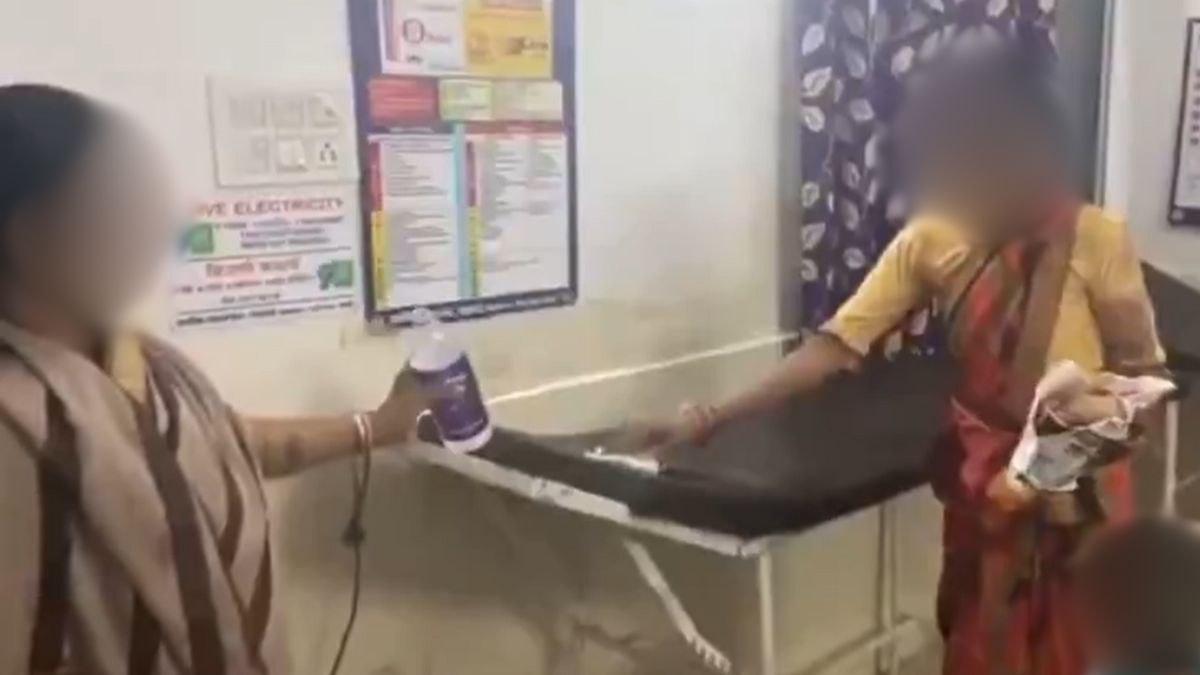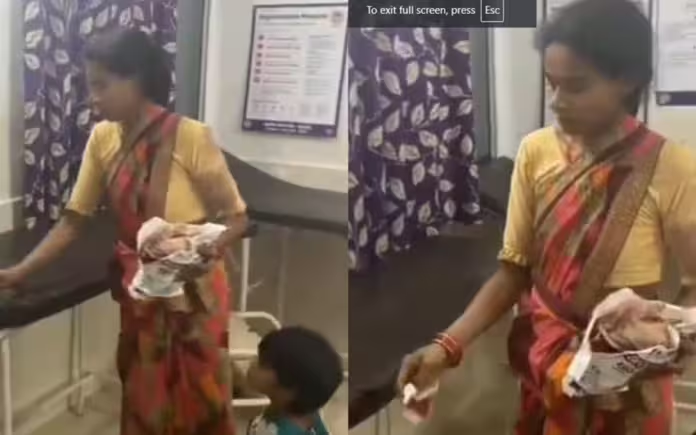Heartbreaking Video Sparks Widow’s Realization of Trauma Amid Public Outcry.
For Roshni Marawi, a five-month-pregnant woman from Dindori, Madhya Pradesh, the reality of her traumatic Diwali night did not fully register until she saw a video of herself online. In that video, Roshni is seen cleaning a blood-soaked hospital bed after her husband Shivraj and his family members were brutally murdered in front of her in a land dispute. The viral footage, which spread rapidly on social media, has thrown a spotlight not only on Roshni’s harrowing experience but also on the troubling conditions and lack of support in rural government hospitals.
“When I saw that video, I couldn’t believe what I went through,” Roshni said, struggling to recount the memories of that tragic night. “At the time, I was in a daze. My daughters were crying for their father, but his face was so mangled that they didn’t recognize him. I was barely aware of what was happening.” It wasn’t until she saw the viral footage, which captured her quietly wiping her brother-in-law’s blood from the bed, that the full impact of her ordeal sank in.
A Viral Reminder of Unimaginable Pain.
Roshni, who lives in a modest mud-brick house with her two young daughters, had been eagerly awaiting Diwali as a time of joy. But instead, she was confronted with a nightmare that left her husband and his relatives dead, and her world irreparably changed. In the video, she appears mechanically wiping the bed, unaware at the time that the act would later symbolize her trauma for thousands who watched it online.
“I didn’t understand at the time,” Roshni reflected. “Everything was happening so fast. I was just doing what I was told, and I didn’t know that the video was being taken. I only realized the gravity of it later, and that’s when the reality of my situation hit me.”
For Roshni, the viral video was more than just a recording of events; it became a mirror that revealed the depths of her pain and the profound lack of support she received in her moment of need.

Public Reaction and the Question of Dignity in Government Hospitals.
The video of Roshni cleaning the bed has stirred widespread outrage and prompted calls for an investigation into the standard of care and basic human empathy in India’s rural hospitals. Critics argue that Roshni’s plight represents a tragic consequence of systemic issues in government healthcare, where overburdened and under-resourced staff are often unable to provide the compassion or assistance grieving families desperately need.
The Dindori administration responded to the public outcry by suspending two nurses and transferring the attending doctor, who claimed that Roshni had volunteered to clean the blood as evidence of her loss. Dr. Chandrashekhar Singh, the doctor in question, defended his actions, saying, “We did not ask her to clean. She wanted to wipe the blood to use it as proof of the violence.” This defense, however, has done little to quell public anger, as many believe the hospital’s response falls far short of what any grieving family should endure.

A Pregnant Widow’s Pain Amplifies the Urgent Need for Reform.
Roshni’s story has ignited discussions on the urgent need for improved healthcare and sensitivity protocols in India’s rural medical facilities. Health advocates argue that hospitals must implement specific training and procedures to support families in crisis, especially in traumatic cases like Roshni’s. Roshni’s family, having already suffered so much, should not have been left to fend for themselves in such conditions, critics contend.
The incident has struck a nerve nationwide, becoming a stark symbol of the institutional gaps that deprive grieving families of the dignity and respect they deserve. In Roshni’s case, the viral video has allowed the world to bear witness to her struggle, with many hoping it will spur long-needed changes to India’s rural healthcare framework.
As for Roshni, she remains heartbroken and wary of further scrutiny. “I didn’t expect my grief to become something for everyone to watch,” she said quietly. “I just want my daughters to be safe, and for them to remember their father as he was before this happened.”

